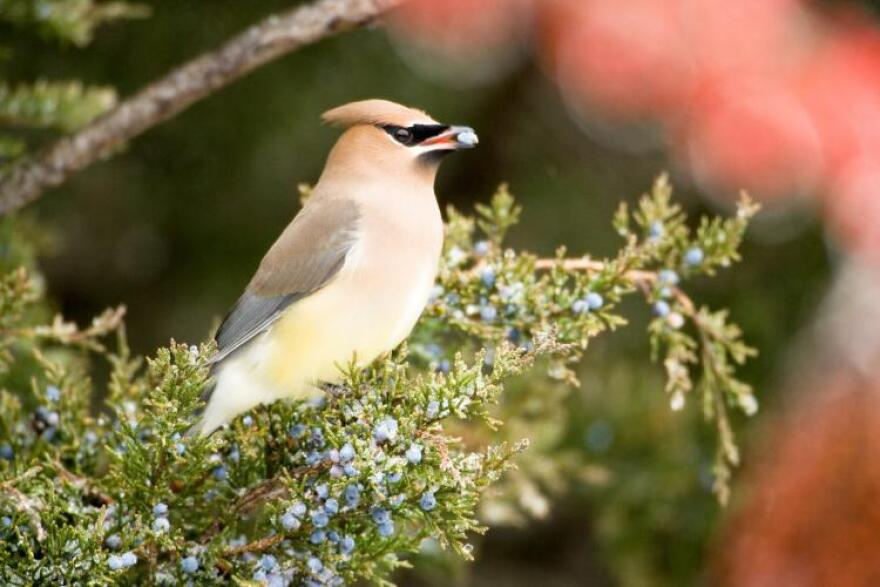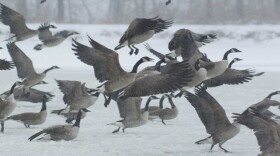Birds and other wildlife can sometimes find their surroundings overripe for intoxication. Fruit can become alcoholic in several ways. Sometimes in the fall, fruit matures too much and ferments. In the winter, cold concentrates a fruit’s sugar, which then breaks down and produces alcohol.
You're most likely to see cedar waxwings in this condition. This usually occurs in spring, when warming days cause last year's berries to ferment. Following lunch at a favorite berry bush, members of a cedar waxwing flock sometimes tumble from perches, bump into each other, and fly into things. This usually lasts a few minutes, and then, if they survive their dangerous antics, they fly away. Impaired birds sometimes fly into walls and windows, and they are vulnerable to predators, including house cats.
Robins, pigeons and even insects are occasionally observed in what looks like an inebriated state. Bees find it impossible to fly after sipping overripe nectar. Wasps can become tipsy when feeding on rotten fruit. Falling to the ground, they buzz around on their backs for a few seconds while their rapid metabolism cleanses the alcohol from their systems.
Drunken wildlife is probably more common than we realize. There is no evidence, however, that wildlife enjoy this condition and don't seem to do it deliberately. This impairment is a lesser-known challenge in the wild.
If you find birds in your yard that seem to be acting peculiar, set out water for them to drink and rehydrate.
Learn more at MissouriConservation.org.






